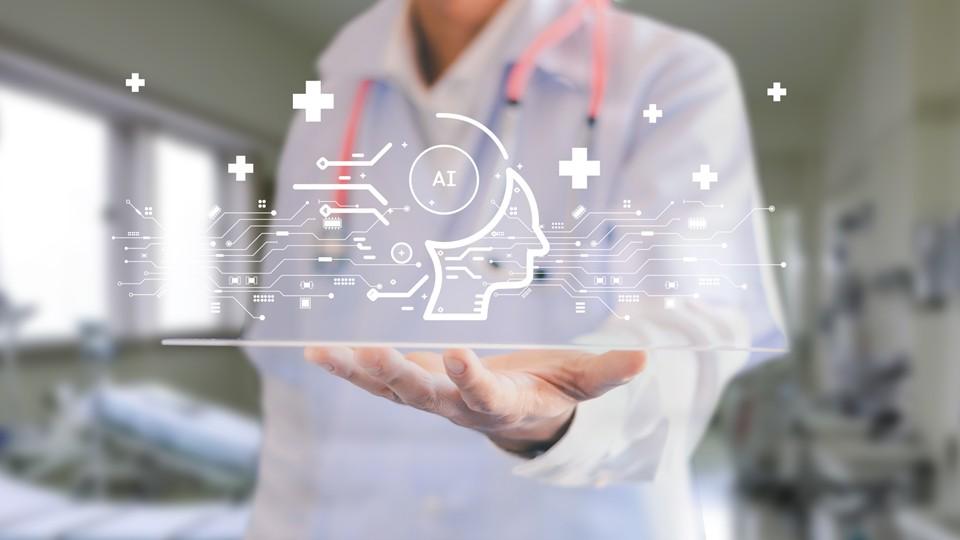AI and the human touch: Embracing a symbiotic future

How long is your current to-do list?
In today’s hyper-paced digital world, it’s likely longer than you could reasonably accomplish in a given day or week. Most working professionals have, at one point or another, wished they could spend less time on boring tasks and more time on interesting ones.
With the recent advent of artificial intelligence (AI), now you can. Indeed, AI is uniquely qualified to assist the pharmaceutical industry in its efforts to improve the health and well-being of humanity.
The incredible capabilities of today’s AI
The first advantage of incorporating AI is its ability to scratch tasks off human staff’s to-do lists. Today’s AIs can handle a surprising range of administrative activities. For instance, they can conduct data entry, answer the phones, respond to common questions from stakeholders, direct inquiries to the right person, pen correspondence, set up appointments, take notes during meetings, and distribute materials on demand. Moreover, since AI never tires nor needs to sleep, it can perform these tasks at all times of day or night.
AI can also provide invaluable assistance to pharmacies by tracking and updating their inventories of medications. In addition, it can forecast which medications will need to be replenished (and when), as well as submit the necessary orders. AI can even flag problematic interactions between the various drugs in a patient’s regime, forestalling dangerous reactions.
On top of that, AI also has the ability to collect, analyse, and generate insights quickly from massive data sets. This ability has been particularly helpful in the realm of healthcare, as AI can use medical imaging to identify patterns in specific patient data, which can hasten the ability to diagnose their conditions and lead to speedier treatment, improving overall outcomes.
Similarly, AI can process the mountains of data generated during pharmaceutical companies’ clinical trials and point researchers towards interesting trends or anomalies. If that isn’t already enough, it is also capable of levels of precision that transcend human limitations. For instance, AI can pinpoint deviations between two sequences of genomes in a fraction of the amount of time a human would need.
AI-human collaboration
With AI taking care of these responsibilities, your employees won’t have to, which will free them to focus on more creative and complex matters. They will also have more time for the things that matter most to your organisation, such as how to best solve persistent problems and scale operations. As a result, pharmacists will be able to focus on their patients, and researchers will be able to concentrate on designing the next study.
Meanwhile, human oversight can lend AI a human touch. While today’s AI has come a long way in identifying and responding to human emotions, continuing to integrate AI with emotional intelligence will help improve customer service and internal relations with employees. This is particularly important in the realm of healthcare and the pharmaceutical industry, given the high stakes and powerful emotions that can often be involved.
In this way, I like to think of humans as collaborating with AI in a symbiotic relationship. Teams that include both people and AI working together can perform better than either would separately.
Ensuring an equitable future
The shift towards AI also presents humanity with a revolutionary chance to ensure a fairer, less prejudiced future. AI is objective and has no biases of its own — they learn from the data sets we give them. Those data sets, however, have been biased in too many cases, which has led to problematic algorithms.
The good news is that the pharmaceutical industry seems uniquely positioned to address these problems. As one researcher noted, this industry has “a long history of developing risk-assessment methodologies, on a stage-by-stage basis, facing the known and the unknown. The pharmaceutical industry also has a long history of Applied Ethics [...] In addition, they have adopted an independent regulatory body (US FDA, UK MHRA, or EU MDA) — a necessity that keeps coming up in many AI ethics discussions.”
Designing AI systems with ethical principles in mind is crucial to prevent misuse or continued discrimination, which is why I recommend rigorous oversight and monitoring of AI’s operations and outputs for possible bias. Businesses should also make their use of AI as transparent as possible, since the public can help spot and call attention to any problematic outcomes that may be resulting from a mis-trained AI.
Unleashing the pharmaceutical industry
While today’s AI is undoubtedly impressive, we must not sit on our laurels. For further advances, AI must continue to learn and refine its processes.
Meanwhile, human staff must keep pace with this evolving technology. By adapting and learning together, however, human-AI teams can foster a mutually beneficial partnership.
Embracing this symbiotic future with AI will unleash pharmaceutical organisations from their previous limitations and enable them to reach whole new levels. Thanks to this industry’s improved performance and productivity, all of humanity stands to benefit.













